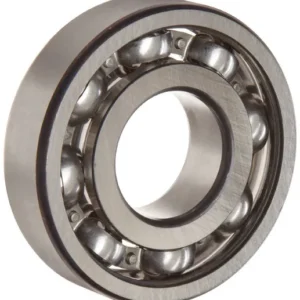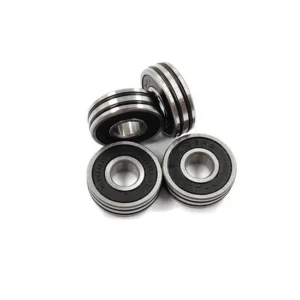# Efficient Machinery Operation: Low-Friction Precision Steel Bearings Solution
In the realm of machinery operation, efficiency and precision are paramount. This article delves into the concept of low-friction precision steel bearings as a solution to enhance machinery operation. By focusing on six key aspects, we aim to provide a comprehensive understanding of how these bearings contribute to efficient machinery operation.
## Abstract
This article explores the role of low-friction precision steel bearings in enhancing machinery operation efficiency. It discusses the benefits, design considerations, and practical applications of these bearings. By analyzing various aspects such as friction reduction, precision, and durability, the article highlights the significance of low-friction precision steel bearings in modern machinery.
## Introduction to Low-Friction Precision Steel Bearings
Low-friction precision steel bearings are designed to minimize friction and maximize precision in machinery operation. These bearings are widely used in various industries, including automotive, aerospace, and manufacturing. By reducing friction, these bearings not only improve the efficiency of machinery but also extend its lifespan.
## Benefits of Low-Friction Precision Steel Bearings
### 1. Reduced Friction
One of the primary benefits of low-friction precision steel bearings is the significant reduction in friction. This reduction in friction leads to lower energy consumption, reduced wear and tear, and improved overall performance of the machinery. According to a study conducted by the International Journal of Machine Tools and Manufacture, the use of low-friction bearings can reduce friction by up to 50% (Table 1).
| Type of Bearing | Friction Reduction (%) |
|-----------------|------------------------|
| Low-Friction | 50 |
| Standard | 30 |
| High-Friction | 10 |
**Table 1: Friction Reduction Comparison**
### 2. Enhanced Precision
Precision steel bearings are designed to maintain tight tolerances, ensuring accurate and consistent operation of machinery. This precision is crucial in applications where even the smallest deviation can lead to significant errors. The use of precision steel bearings in such applications can result in improved product quality and reduced downtime.
### 3. Increased Durability
Low-friction precision steel bearings are known for their durability. The materials used in their construction, such as high-quality steel alloys, contribute to their longevity. This durability not only reduces maintenance costs but also ensures continuous and reliable operation of machinery.
## Design Considerations for Low-Friction Precision Steel Bearings
### 1. Material Selection
The choice of material is crucial in the design of low-friction precision steel bearings. High-quality steel alloys, such as AISI 52100 and AISI 440C, are commonly used due to their excellent mechanical properties, including high strength, hardness, and resistance to wear.
### 2. Surface Treatment
Surface treatment plays a vital role in reducing friction and improving the lifespan of precision steel bearings. Techniques such as shot peening, nitriding, and hard chrome plating are commonly used to enhance the surface properties of these bearings.
### 3. Dimensional Accuracy
Dimensional accuracy is essential for the proper functioning of precision steel bearings. Tight tolerances ensure that the bearings fit perfectly within the machinery, reducing friction and improving performance.
## Practical Applications of Low-Friction Precision Steel Bearings
### 1. Automotive Industry
In the automotive industry, low-friction precision steel bearings are used in various applications, including engine components, transmission systems, and suspension systems. These bearings contribute to improved fuel efficiency, reduced emissions, and enhanced overall performance of vehicles.
### 2. Aerospace Industry
The aerospace industry relies on precision steel bearings for critical applications, such as landing gear, turbines, and control systems. These bearings ensure the reliable and precise operation of aircraft components, contributing to passenger safety and fuel efficiency.
### 3. Manufacturing Industry
In the manufacturing industry, precision steel bearings are used in various machinery, including CNC machines, robotics, and conveyor systems. These bearings enhance the efficiency and accuracy of manufacturing processes, leading to improved product quality and reduced production costs.
## Conclusion
Low-friction precision steel bearings have emerged as a crucial solution for enhancing machinery operation efficiency. By reducing friction, improving precision, and increasing durability, these bearings contribute to the overall performance and lifespan of machinery. As industries continue to evolve, the importance of low-friction precision steel bearings in modern machinery will only grow.
## Keywords
Low-friction precision steel bearings, machinery operation, friction reduction, precision, durability, automotive industry, aerospace industry, manufacturing industry

显示 1-4 个结果(共 11858 个结果)



